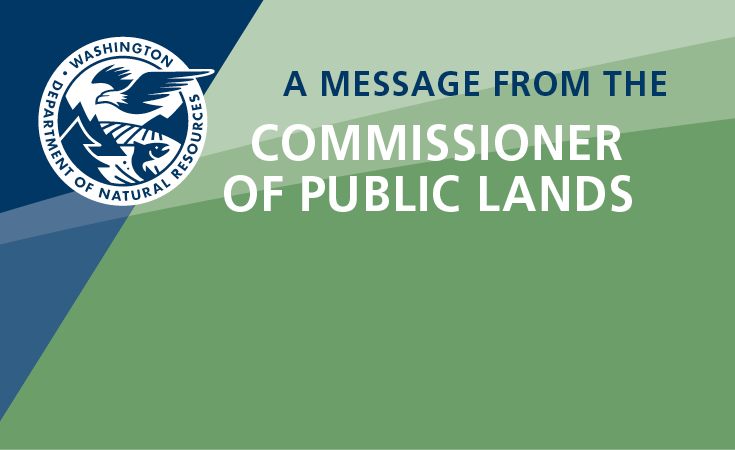Cleveland Shrub Steppe Natural Area Preserve

This preserve includes high-quality examples of native shrub-grassland ecosystems, known as shrub-steppe, that were once abundant in central and eastern Washington. Located along the margin of the Columbia Basin and eastern Cascades, this 640 acre site also includes woodlands with Oregon white oak, aspen, juniper and ponderosa pine, as well as a spring and stream that provide habitat for an array of wildlife species.
In 1997, a rare species of soil-dwelling lichen, previously unknown from Washington, was discovered growing within the grasslands at this site.
A large wildfire burned over most of the site in 1998, helping to perpetuate a natural process that thins out trees and stimulates the growth of the grassland flora.
Features Protected: antelope bitterbrush/Idaho fescue plant community, Douglas' buckwheat/Sandberg's bluegrass plant community, and woven-spore lichen.
Ecoregion: Columbia Plateau (Klickitat County)
Ecoregion: Columbia Plateau (Klickitat County)
Science, Research and Monitoring
Public and private universities, other research institutions and individual researchers may contact DNR to propose a research project at the site. If you are interested in pursuing research at Cleveland Shrub Steppe NAP, please contact David Wilderman, natural areas ecologist, at david.wilderman@dnr.wa.gov.
Examples of research and monitoring projects
- Wilderman, D. 2003. Effects of Wildfire on High-Quality Shrub-Steppe Vegetation, Cleveland Natural Area Preserve, South-Central Washington State. In: Kaye, T.N., M. Gisler, and R. Fiegener (editors). Proceedings of a Conference on Native Plant Restoration and Management on Public Lands in the Pacific Northwest: Rare Plants, Invasive Species and Ecosystem Management. Institute for Applied Ecology, Corvallis, Oregon.
Environmental Education and Public Access
Currently no formal educational programs are available at Cleveland Shrub Steppe NAP. The site is not ADA accessible and facilities are not available. For more information, contact the DNR Southeast Region natural areas manager.


